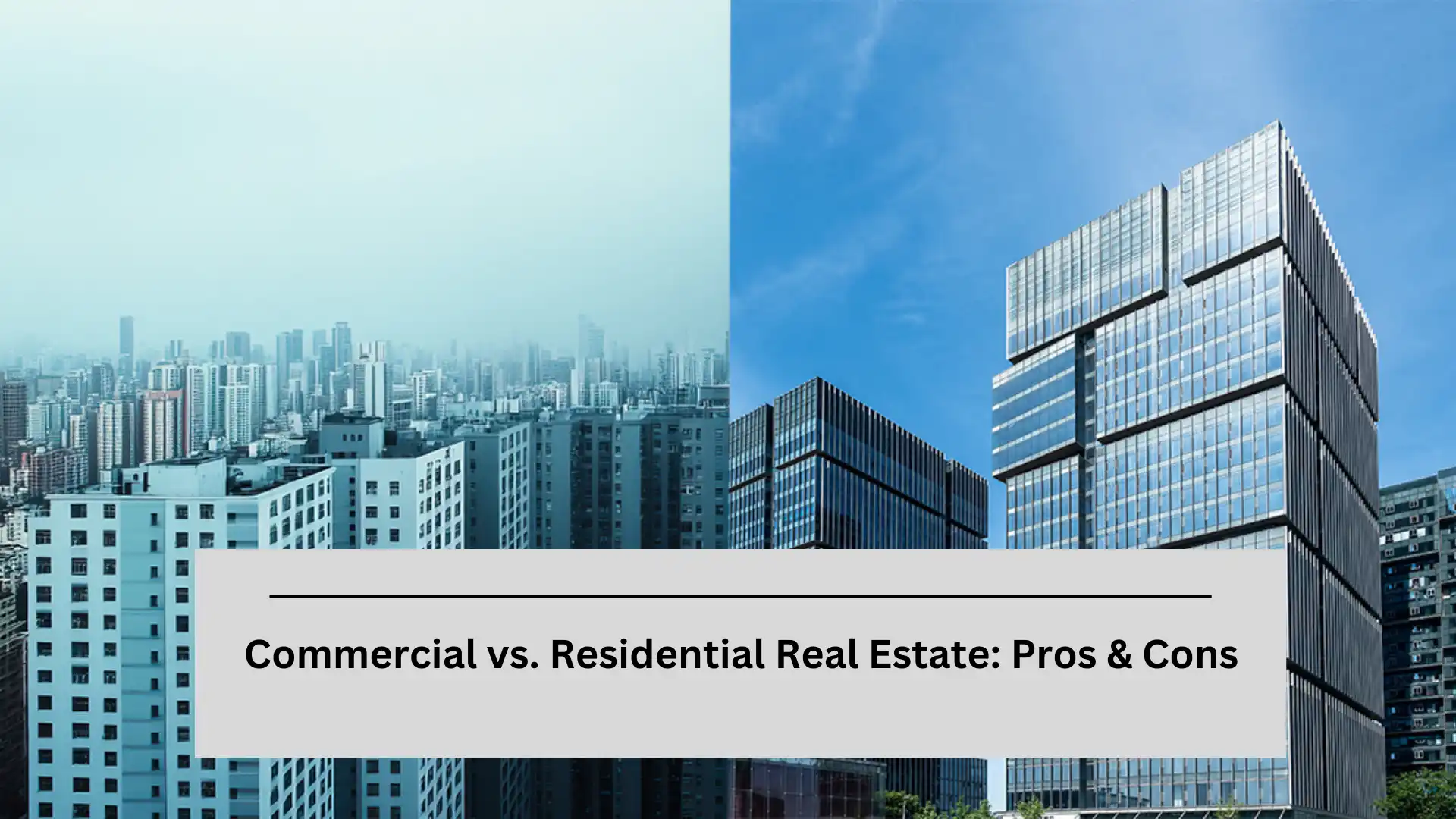When it comes to property investment, there is no doubt that one of the most significant questions that an investor has to answer is whether to invest in Commercial vs. Residential property. Every strategy has its benefits and drawbacks, and the best option depends on your objectives, tolerance for risk, and time horizon.
Whether you are a new investor or an experienced one, it is crucial to know the differences between Business property vs residential real estate to make the right decisions. In this article, we will discuss the advantages and disadvantages of both so that you can determine which one is best for you in 2025.
The Allure of Residential Real Estate
In general, classifying residential investment as a first choice for many a new investor is quite reasonable. The residential properties are easier to understand, to finance, and to manage as compared to the commercial properties. Whether it is a studio apartment, a two BHK flat, or a villa, houses are always in great demand, especially in growing cities such as Pune and Goa.
The flats in the gated communities or townships also offer lifestyle facilities, a stable rental market, and a relatively lower capital investment than the commercial premises. Some of the best examples of such residential projects are Aranya, Neelaya, or Avon Vista by Naiknavare Developers.
Nevertheless, there are some risks that are associated with residential investment. Rental yields are generally lower than those of commercial property, and the tenant turnover is also higher. Other conditions that may influence your returns if not controlled include maintenance and society regulations.
Why Commercial Real Estate is so Appealing
On the other hand, commercial properties like offices, retail stores, or co-working spaces have the possibility of yielding higher returns and longer lease terms. The other factor that makes business property better than residential real estate is the question of rental yield. Commercial properties, on the other hand, have yields of between 6% and 10% which is higher than that of residential property that has yields of between 2% and 4%.
Likewise, with the new generation start-ups, work from home, work from other cities, and retail business, good location commercial projects such as 7 Business Square in Pune or Esmeralda Business Square in Goa are attracting smart investors. These spaces not only meet the requirements of visibility and accessibility but also guarantee the attraction of large companies for long-term leases.
It is not all that glamour; commercial investments entail higher entry barriers, and complex legal contracts and are more cyclical and sensitive to the business cycles. Vacancy costs are also higher, especially in specialized commercial areas that are more sensitive to specific industries.
Comparing the Pros & Cons
Below is a comparison between Commercial vs. Residential real estate:
Initial Investment
- Residential: Lower, easier to finance
- Commercial: Higher, needs more capital or consortium buying
Rental Yield
- Residential: Moderate (2-4%)
- Commercial: High (6-10%)
Tenant Management
- Residential: Frequent turnover
- Commercial: Long-term leases, less hassle
Risk Factor
- Residential: Lower, stable demand
- Commercial: Higher, market-sensitive
Regulatory Complexity
- Residential: Straightforward
- Commercial: More legal and compliance layers
Both have their advantages, and the choice between them is possible only based on the priorities of an investor.
What’s Performing in 2025?
The demand for property investment in both sectors is relatively equal in 2025. Residential continues to be healthy in well-located suburbs and well-planned integrated townships. Affordable homes for first-time buyers with an eye on the next level will remain a good bet for capital appreciation and rental income.
On the other hand, commercial properties, especially those in business areas, technology parks or near transport facilities,s are doing well. With the increase in the number of companies opting for the hybrid model, they are opting for flexible spaces in multi-utility buildings, which has given rise to a new type of CRE investor.
Naiknavare Developers: A One-Stop Investment Destination
In comparing the two, it is useful to consider those who have worked in both the commercial and residential sectors with enthusiasm and innovation. Naiknavare Developers has a wide portfolio of residential, plotted, and commercial projects in Pune, Mumbai, and Goa.
They have their residential projects like KUTUMB, Shivatman, and Dwarka Township which are planned for generation homes, environment friendly, and comfort.
In the commercial aspect, they have developed functional business facilities like 7 Business Square and Esmeralda Business Square that are aesthetically appealing and located in strategic areas for investors and businessmen.
Through being clear, punctual, and strategic, Naiknavare makes it easier for investors to distinguish between Business property vs residential real estate.
Final Thoughts
As will be observed, there is no universal approach to investing in real estate that can be used across the board. To some people, a residential investment is a common type of investment that is known to offer a steady income. For others, commercial property provides higher yields and diversification of the investment portfolio. Whichever you choose, take your time, understand your financial objectives and goals, and engage the right developers who share your vision.
Real estate is still a good investment in 2025 if the investor is wise and informed on the current trends in the market.


